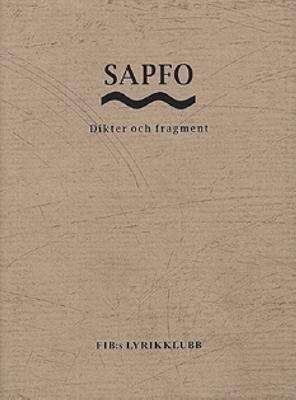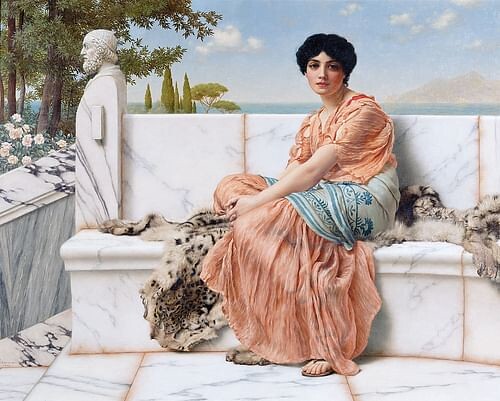What do you think?
Rate this book


130 pages, Hardcover
First published January 1, 551
171
paingiver
164
she summons her son
μήτε μοι μέλι μήτε μέλισσα
(mēte moi meli mēte melissa)
]
here to me from Krete to this holy temple
where is your graceful grove
of apple trees and altars smoking
with frankincense.
And it in cold water makes a clear sound through
apple branches and with roses the whole place
is shadowed and down from radiant-shaking leaves
sleep comes dropping.
Leave Crete and sweep to this blest temple
Where apple-orchard's elegance
Is yours, and smouldering altars, ample
Frankincense.
Here under boughs a bracing spring
Percolates, roses without number
Umber the earth and, rustling,
The leaves drip slumber.



while eyes, the black sleep of night
(fr. 151)
Once again Love, that loosener of limbs,
bittersweet and inescapable, crawling thing,
seized me.
To me it seems that man has the fortune
of gods, whoever sits beside you
and close, who listens to you
sweetly speaking
and laughing temptingly. My heart
flutters in my breast whenever
I quickly glance at you —
I can say nothing,
my tongue is broken. A delicate fire
runs under my skin, my eyes
see nothing, my ears roar,
cold sweat
rushes down me, trembling seizes me,
I am greener than grass.
To myself I seem
needing but little to die.
Yet all must be endured, since…
(fr 31)